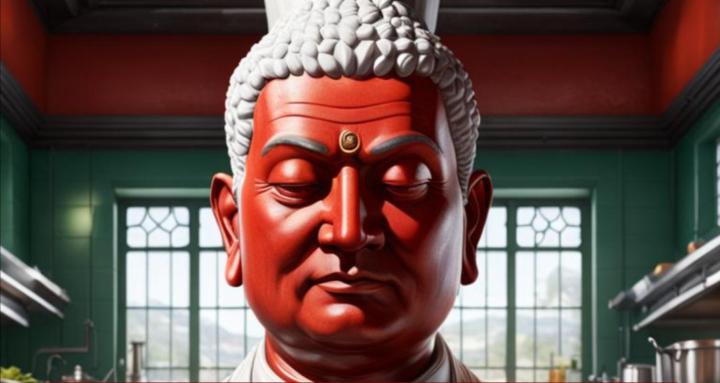
Write something
Meditation + Tapping
how do you recommend integrating tapping with meditation? Which comes first? Same time?
0
0
Questions from Labeling
@Dj Burrough asked these questions in a chat, but given they are not personal and others might benefit, so I am reposting and speaking to them here. He asks: I was under the impression during the meditation to notice that when we label something it takes us out of being present in the moment. As if to say, "Oh, this is this anger," and then to stop looking at it. So, I take from the lesson that labeling takes us out of the present, but the Two Arrows chapter speaks to how labeling helps us to ease anxiety. So, I'm unsure what to do with labeling. Lastly, I'm sure you've seen the list of foreign words that describe emotions that Americans have but don't have a word in English. I always find it a relief to know that my emotion that I don't have a word for is so universal that at least the Japanese have a word for it. Wabi-sabi, the experience of finding beauty in imperfection. That labeling seems helpful, but I can see that it ends the exploration of the moment once you have a label for it. I think these are really insightful questions, and I have a few thoughts: The idea of labeling is not to take you out of the present but to allow you to step back in. If I am in a state of unrecognized anger, or despair, or fear, for example, then I am not present. Why? Because almost always, nothing happens in the current reality that would match that experience. Mainly in the current reality, I am alive, breathing, safe, whatever - the experience of fear (or whatever) is a function of some perceived future threat - I am living in that threat and not in the present. Labeling the experience I am having as something, giving it a name, creates a separation - I am not angry, I have anger. There is a me beyond the experience, a "me" that is actually experiencing something. It's a way to uncollapse what's happening from what I am saying about it. Oh, that's anger over there. I am over here. In the present. That also lowers stress and anxiety. Living in the present, in the moment, is almost always not stressful - there si so rarely anything stressful happening in the moment. There are peak moments of stressful things but mostly our lives are doing the dishes, cooking meals, going to and from work, boring boring boring. Or beautiful, beautiful, beautiful if you'd rather. Of course, you are welcome to have all that be stressful, but you can't do it by living in the present.
0
0
What is Dana
Dana (pronounced “DAH-nah”) is a Sanskrit/Pali word meaning generosity, giving, or offering. It’s one of the foundational practices in Buddhist traditions, but this is not about handing over a few bucks to a good cause and calling it a day. Dana is about giving as a practice, the kind of generosity that expands you, stretches your heart, and rewires your relationship with abundance. It’s not just charity; it’s an expression of who you are, a way to step into the flow of giving and receiving instead of clinging, hoarding, or feeling like there’s never enough. If mindfulness is about awareness, then generosity is what we do once we’re aware. Once you truly see what’s present in your life—the kindness, the support, the resources—you can’t help but want to pay it forward. Generosity trains you to live from a place of “enough” rather than scarcity. When you give, you affirm to yourself: ✅ I have something to offer. ✅ I trust that more will come. ✅ I am part of something bigger than just me. When you give freely, you create the very conditions that make gratitude inevitable. You can’t help but notice what’s already flowing in your direction. In traditional Buddhist settings, monks and teachers don’t charge for teachings. Instead, they rely on Dana—the voluntary generosity of students—to support their work. The idea is that the teaching itself is priceless, so instead of slapping a price tag on it, people give what they can from the heart. That’s a radical idea in today’s world, where everything has a price, and we’re conditioned to evaluate “worth” in dollars. But Dana reminds us that value isn’t transactional—it’s relational. It’s about recognizing that we’re all in this together, supporting each other in ways beyond money. The best guidance I've ever received on Dana is this: "The student is encouraged to give the amount that would cause them no regret." Your contribution, of any amount, is an act of generosity, and the amount is yours to determine. The program was given freely, and there is no expectation of a gift.
3
0
1-6 of 6

skool.com/living-a-grateful-life-1910
The home of Living a Grateful Life in a Fcked Up World mindfulness meditation course. A place where all your resources, videos, links, etc. will live.
Powered by


